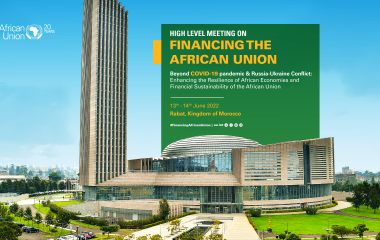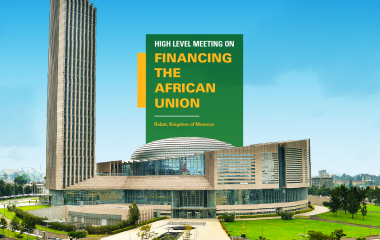Topic Resources
November 03, 2018
January 18, 2018
November 15, 2017
October 31, 2017
February 10, 2022
Agenda 2063 is Africa’s development blueprint to achieve inclusive and sustainable socio-economic development over a 50-year period.
January 01, 2025
Supply Chain Management Division Operations Support Services Directorate
Addis Ababa, Ethiopia
December 30, 2024
December 30, 2024
January 27, 2025
Opening Remarks by H.E. Taye Atske-Selassie, President of Ethiopia at the CAADP Extraordinary Summit
January 11, 2025
January 11, 2025








